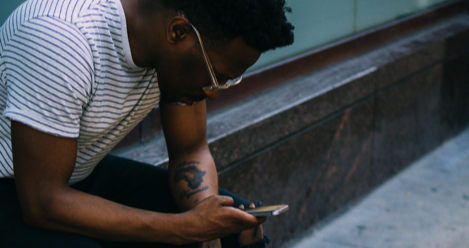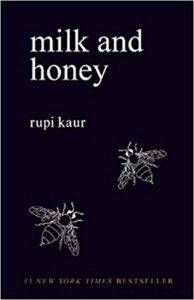
Literary Magazines vs. Instagram: A Poet’s Perspective
As several people have pointed out, poetry is making a comeback. When you put together social media’s love of the short and shareable with a dystopic political climate and widespread cultural, racial, and political tension, you get a good breeding ground for poetry. We increasingly go to social media to try to digest current events, and poetry as a form is uniquely able to help in that process. It’s short enough to be easily shared, and makes intuitive leaps that allow readers to see things in new ways.
Tak
Here’s the thing, though. If Rupi Kaur had been concerned with publishing her poetry in traditional literary magazines, she would never have published her work on Instagram. Most literary magazines still require that all submissions be previously unpublished. This means, to quote one such institution:
“any appearance in print or online, including on or in a newspaper, newsletter, magazine, anthology, chapbook, book, e-book, website, thesis/open-source academia, electronic magazine, personal blog, Twitter, Facebook, or other social-media platform.”
Translation: if you want to strive for traditional success as a poet, you must hoard your poems carefully, send finished work out to one magazine at a time (simultaneous submissions discouraged!), wait for months to hear back, and more likely than not submit again elsewhere after being rejected. At that pace, a poem I love could spend years sitting in one editor’s inbox after another, never being read. Of course, social media platforms have their own problems, and not every poet online will have the same kind of break-away success Rupi Kaur has. But a poem on Instagram certainly has higher odds of being read by somebody than a poem sitting in a magazine’s slush pile.
By forcing me not to share my work online, these publications are making me choose between immediate readership and some ephemeral idea of literary success. In my opinion, if literary magazines continue to follow this policy, they are going to cut themselves out of what is swiftly becoming a thriving poetry renaissance. Treating social media as “previous publication” not only stifles the vibrant poetic conversation taking place on platforms such as Instagram; it also makes the magazines themselves increasingly irrelevant.
As a poet, I can’t quite let go of that dream of publishing my work in a prestigious literary journal. I’ve chased that dream for years, and my work has even appeared in some of these publications. But I’m coming to realize that I can’t prioritize that dream anymore. Journals’ attitudes about previous publication are too isolating. As a poet, all I really want is for people to read my work. I can’t keep storing up poems jealously, never knowing how readers might react to a certain line or image, when an instant test-audience is just a click away.
Literary magazines need to get with the program, or they’ll be left behind. Like many traditional publishing platforms, they are at a crossroads. They can keep holding on to their status as The Curators of All Poetry with a death grip, or they can acknowledge that the way people consume poetry is changing and change their policies accordingly.
How do you prefer to find poetry? Do you subscribe to literary journals, go to readings, or troll Instagram and YouTube? Let me know in the comments.











